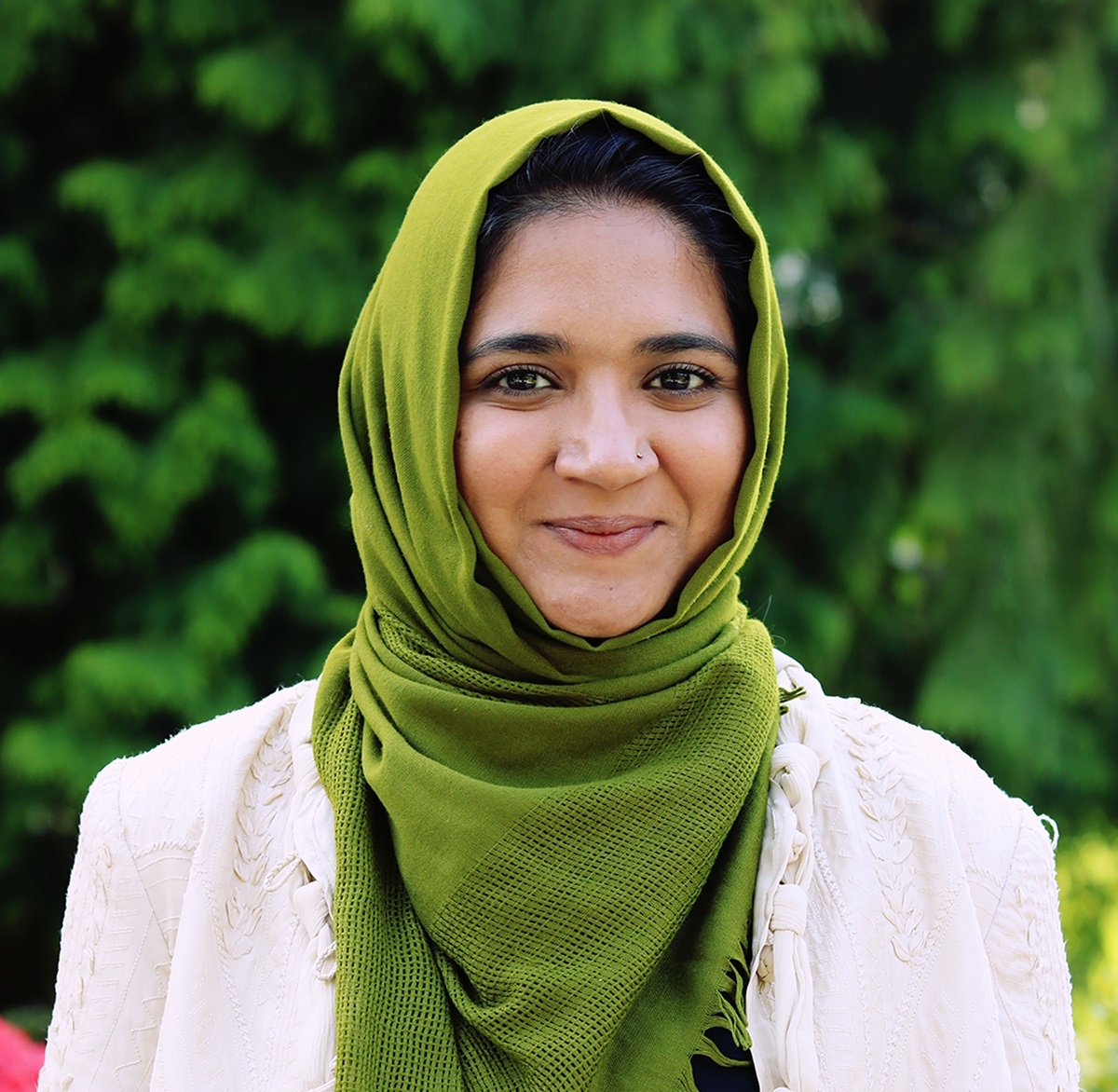Interview with Wajiha Mehdi, a PhD student in the Institute of Gender, Race, Sexuality and Social Justice. Wajiha was the recipient of the Nehru Humanitarian Award in 2018.

A: Congratulations on receiving this year’s Nehru Humanitarian Award, and thank you for taking the time out for this interview. I would like to start-off first by asking what made you decide to go to grad school, and why did you pick UBC?
W: I think studies on Muslim women continue to stereotype them and continue to exist in the realm of Islam (and its negative portrayals) with religion seen as driving force determining every area of their lives, this is one of the main reasons why I decided to pursue grad school and this is also one of the leading motive for my research on the strategies Muslim women adopt in accessing public spaces in India. I chose UBC to study at Gender, Race, Sexuality and Social Justice Institute because I was interested in their interdisciplinary approach with extensive expertise in intersectional feminist research.
A: Why did you choose GSRJ as your discipline?
W: GRSJ interdisciplinary academic environment and participatory research approach make its the best place for me to carry out this research study which aims to bridge the gap between feminist activism and scholarship. My study is inspired and shaped by the diverse methodology and texts I was introduced to and skills I acquired and am still in the process of acquiring at GRSJ. While I read diverse texts in courses such as intersectional feminism, critical race theory and decolonial feminist methodologies, the overlapping theme, I found was how people displace their marginality to produce (theory on) resistance. This inspired my study in geographies of resistance of Muslim women in India.
A: What would be your advice to students who are thinking of pursuing higher studies?
W: When I came here, the very first memory is that of being extremely overwhelmed. As an international student, this meant a major shift in culture, weather and everyday life in general. So, to new students I would say, take your time to settle down. Academia is fascinating, but it can also be very isolating, in these times, do not hesitate to turn to your support system for help. There are so many people who have this shared experience and would be happy to support you. Also, don’t be afraid of raising your voice, asking questions or stating your opinions. It is even more difficult if you are coming from a different country and culture but its important to remember that the perspective you bring to this institution is unique and important.
A: Where did you go for your undergraduate studies, and what did you study?
W: I pursued my undergraduate in communicative english with women studies as subsidiary subject from Aligarh Muslim University (AMU). It was my interest in women studies that led to my pursuing Masters in Human Rights and now PhD in GRSJ. My time at AMU taught me how to bridge the gap between academia and activism as I found myself situated in a historical educational institution that prides itself as the center of Muslim intellectualism in India and yet finds itself systematically marginalised as a minority institution. At AMU, I learnt to develop a lens towards how relations of power are laid out and function in multiple and complex ways and how that affects everyday lives of a minority group. This shapes my current PhD project to a great extent.
A: What do you love about grad school?
W: I love that I am being challenged everyday by the texts I read and the people I meet. I think this is an important time to be in academia with everything that is happening around the world, I am both intellectually fascinated and frustrated as I am constantly thinking of ways we produce work that bridges the gap between theory and practice, academia and activism.
A: Could you provide more insight into your research on studying geographies of resistance of Muslim women in India?
W: This study is motivated by the global trend of rising Islamophobia. I have been thinking about how displaced people might use their marginality to launch resistance and this is what inspired my interest in spatial displacement and marginalised geographies of resistance.
A: What are the long-term goals of your research?
W: I hope my research contributes to ending the scarcity of work on Muslim women’s geographies in India. Moreover, I am hoping that my research contributes to women’s movements on reclaiming public spaces in South Asia by increasing understanding of women’s strategies of negotiation, risk taking and resistance.
A: How do you see your research playing a role in shaping urban planning policies?
W: By conducting feminist participatory action research, I hope to make visible Muslim women’s uitlisation, ownership and experiences of public spaces. The study will explore the infrastructural set ups, the cultural and ideological landscapes that determine Muslim women’s gendered usage of public spaces. I am hoping this research will make visible Muslim women’s agency and collective empowerment of each other in claiming spaces, raising issues of gendered citizenship, inclusive urban planning policies and in doing so, influence urban planning policies to be inclusive by challenging ideological and infrastructural norms in urban planning.
Thank you so much for this interview, Wajiha. We wish you the very best of luck and we’re looking forward to hearing from you soon again in the future!
Interviewed by Akhil Dattani-Jobanputra.